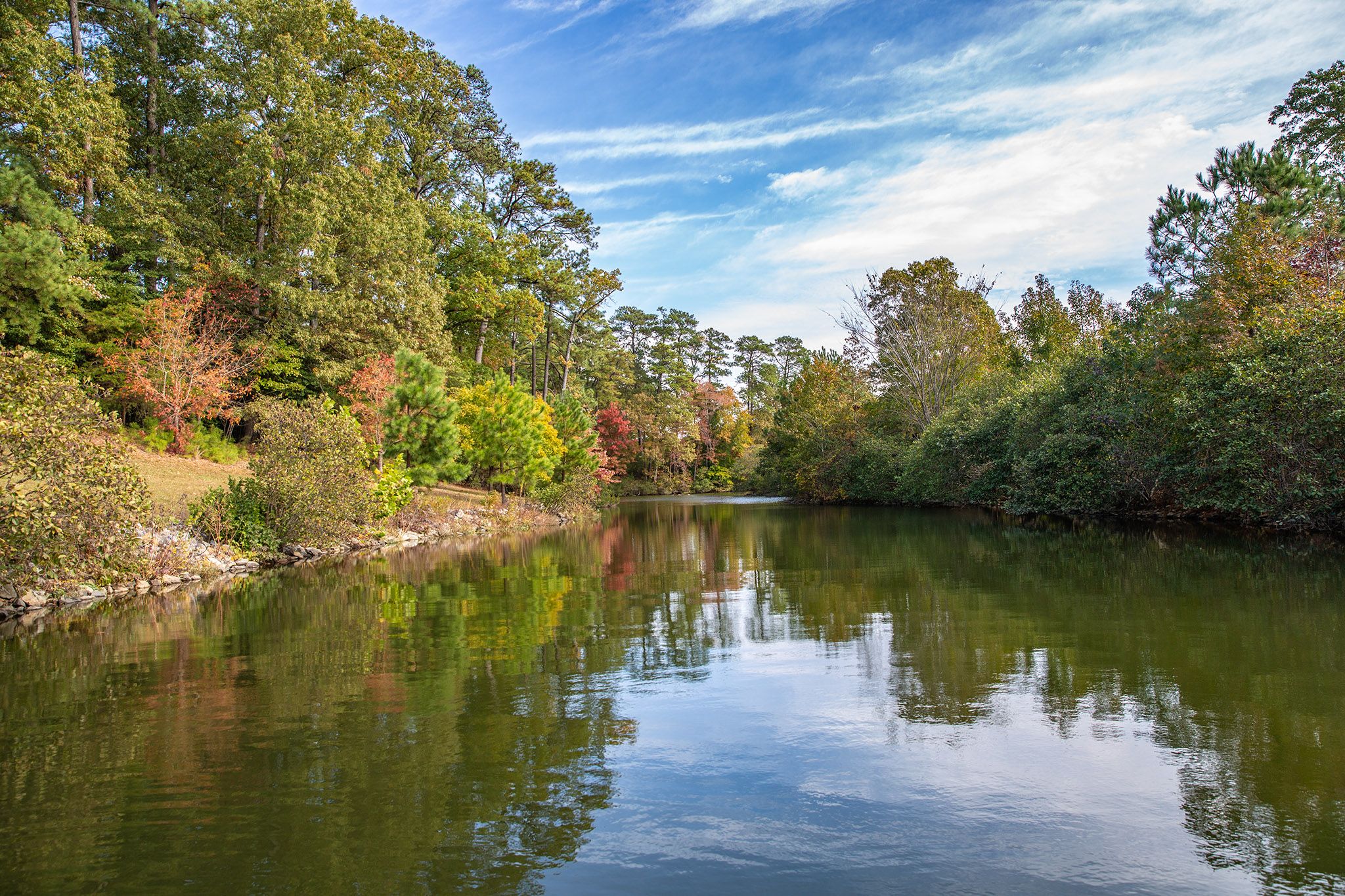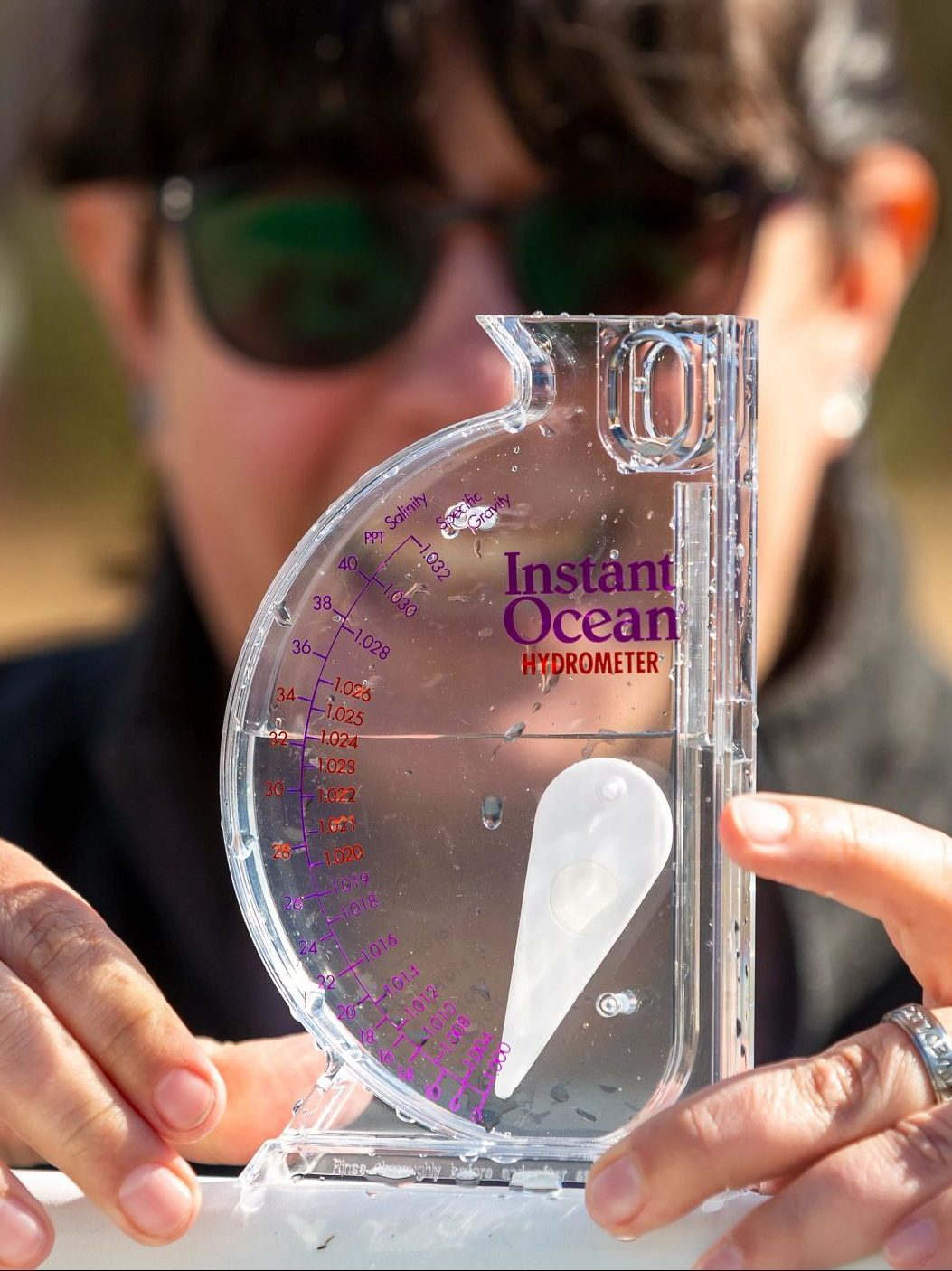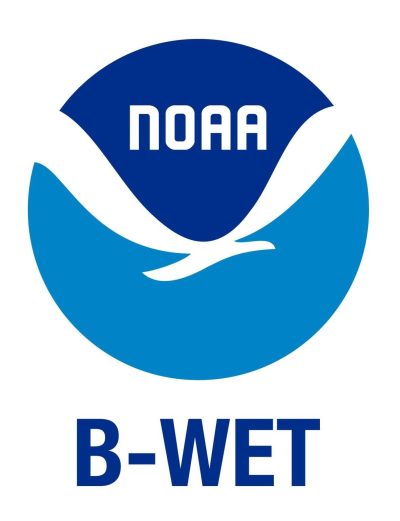Protecting Mariners’ Lake
The Mariners’ Lake within The Mariners’ Park is a stunning 167-acre freshwater lake that makes the perfect backdrop for outdoor activities! Mariners’ Lake also serves as an essential asset for our environmental education programming for area students.

Monitoring Water Quality in Mariners’ Lake
In addition to Mariners’ Lake, our campus is home to a smaller body of water named Kettle Pond. In the summer of 2018, Kettle Pond experienced a die-off of all of its larger fish. With no water quality data on Kettle Pond or Mariners’ Lake, it was difficult for staff to pinpoint the cause. At that point, Park staff enlisted the help of the Peninsula Master Naturalists to identify the best sites to start water testing around the Park. Today, eight sites are being tested in Kettle Pond and Mariners’ Lake. The water quality parameters tested are temperature, pH, dissolved oxygen, salinity, turbidity, and E. coli.
Additionally, The Bronze Door Society funded an ion chromatography unit that allows the Museum’s staff research scientist to test for seven different ions: bromide, chloride, fluoride, nitrate, nitrite, phosphate, and sulfate. The Virginia Department of Environmental Quality funds this initiative. The tests allow Mariners’ staff to learn if Mariners’ Lake is healthy or unhealthy. Over the last four years, the Park Department learned that the Lake is healthy but is facing a turbidity issue.
Turbidity affects the clarity of the water when sediment or dirt gets into the water through erosion. As this lake is human-made, erosion is an ever-present risk along the shoreline. One way to reduce the lake’s turbidity is to increase plant life in the water. The roots of plants hold down the soil, stabilizing the area. The Mariners’ team is working to increase the lake’s plant life through the B-WET program.
Addressing Turbidity in Mariners’ Lake
The Mariners’ Environmental Co-op, a project funded by NOAA’s Bay Watershed Education and Training (B-WET) grant, works closely with Newport News Public School teachers and high school school students to plant native wild celery (Vallisneria americana) in Mariners’ Lake. The native grasses provide food and protection for the wildlife in and around the Lake, and the plants keep the sediment in place, reducing turbidity in our Lake. Participating students in our B-WET program are part of an important solution to help keep our waterways clean.

Thank You to All Our Partners!
Ensuring the health of Mariners’ Lake is an essential project that would not be possible without the community members and partners that help us make progress every year. Thank you!



